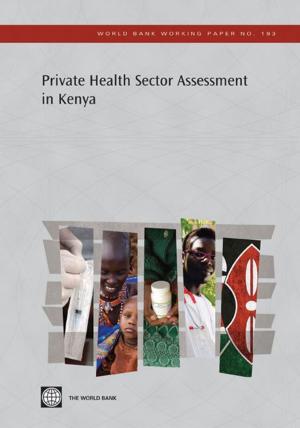Transitions In Secondary Education In Sub-Saharan Africa: Equity And Efficiency Issues
Business & Finance, Business Reference, Education| Author: | World Bank | ISBN: | 9780821373422 |
| Publisher: | World Bank | Publication: | January 31, 2008 |
| Imprint: | Language: | English |
| Author: | World Bank |
| ISBN: | 9780821373422 |
| Publisher: | World Bank |
| Publication: | January 31, 2008 |
| Imprint: | |
| Language: | English |
This working paper discusses equity and efficiency issues in secondary education transitions in Sub-Saharan Africa. Its main purpose is to identify and analyze national, regional, and local measures that may lead to the development of more efficient and seamless transitions between post-primary education pathways. In most African countries student transition from primary to junior secondary is still accompanied by significant repetition and dropout. Transitions within the secondary cycle also cause significant losses and should use more effective assessment and selection methodologies.According to global trends, Africa needs to revisit its postprimary structures to provide more diversified (academic and non-academic) pathways of learning which respond better to the continent's present economic and social realities. In the end, the main goal should be to produce young people whocan become productive citizens and lead healthy lives, as demonstrated by middle and higher-income economies.
This working paper discusses equity and efficiency issues in secondary education transitions in Sub-Saharan Africa. Its main purpose is to identify and analyze national, regional, and local measures that may lead to the development of more efficient and seamless transitions between post-primary education pathways. In most African countries student transition from primary to junior secondary is still accompanied by significant repetition and dropout. Transitions within the secondary cycle also cause significant losses and should use more effective assessment and selection methodologies.According to global trends, Africa needs to revisit its postprimary structures to provide more diversified (academic and non-academic) pathways of learning which respond better to the continent's present economic and social realities. In the end, the main goal should be to produce young people whocan become productive citizens and lead healthy lives, as demonstrated by middle and higher-income economies.















